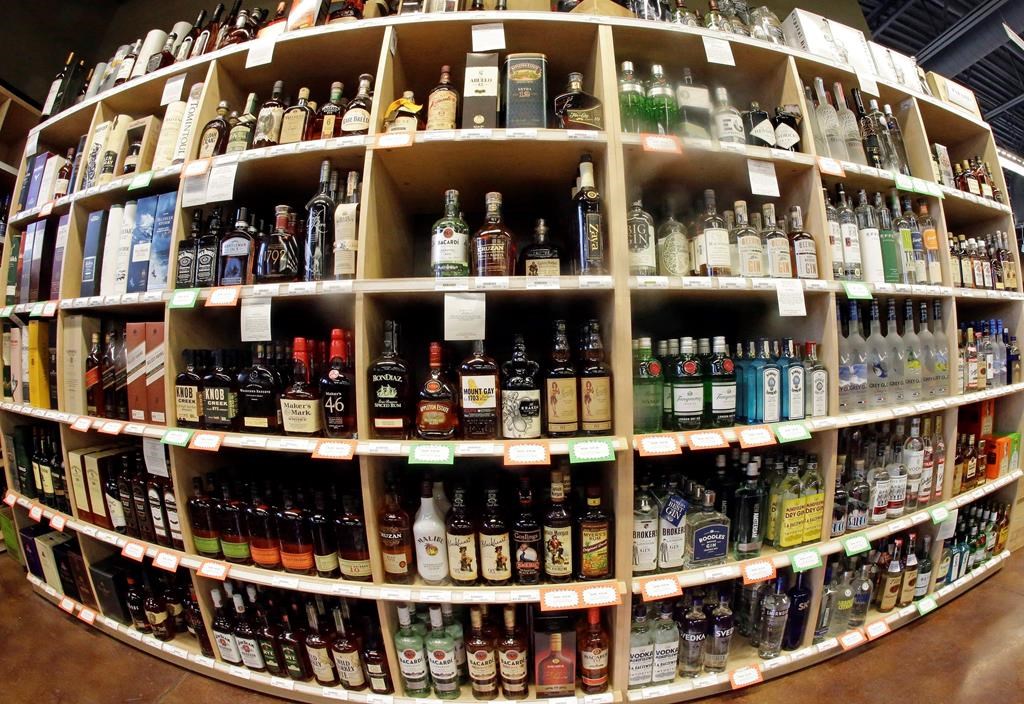An idea out of MacEwan University has been selected from more than 200 entries as a promising way to help combat liquor store theft in Edmonton — a crime that saw a 300 per cent increase from 2018 to 2019.

Earlier this year, the Edmonton Police Foundation partnered with Canada’s largest private-sector liquor retailer, Alcanna, in hopes of finding a solution that would lead to a drastic reduction in liquor theft in Edmonton.
A contest launched in February offered a $500,000 grant with half of the money going to the entrepreneur who produced a solution to drastically reduce liquor store thefts, and the other half being used in the administration and commercialization of the solution.
On Tuesday morning, the EPF announced the most promising idea came from a team from the MacEwan University Social Innovation Institute.
The concept attempts to deter liquor thefts at the point of resale by targetting the restaurants, bars and nightclubs that purchase stolen liquor and resell it to the unsuspecting public.
The premise of the proposal suggests that if criminals lose the market for their stolen liquor, they will have less reason to steal it from stores.
The Social Innovation Institute proposal will use a high-profile awareness campaign, hidden tracking devices in bottles and a whistle-blower cash prize targeted at restaurant employees who tip off police about their establishments buying stolen liquor.

Get breaking National news
The group said it’s hoped that bars, restaurants and nightclubs that purchase stolen liquor will be afraid of being caught, criminally charged and prosecuted.
“MacEwan University is honored to be awarded the opportunity to partner with Alcanna and the Edmonton police to address this critical issue in our city,” said Dr. Wanda M. Costen, dean of MacEwan University’s School of Business.
“This engagement is a great example of how post-secondary institutions can positively impact the communities we serve.”

From 2018 to 2019, Edmonton saw a 300 per cent increase in the number of liquor store robberies, according to the Alberta Liquor Store Association.
In 2019, EPS officers responded to 9,565 theft of liquor calls across the city, which works out to about 26 per day. Each call takes an average of one and half hours of investigation time, which is a significant draw on police resources, according to EPS chief Dale McFee.
“Liquor thefts in Edmonton and in cities across Canada continue to place immense pressures on police resources and their respective societies,” McFee said. “We’re thrilled that a submission from an Edmonton university has been selected to help find a solution to easing the burdens caused by this crime on our communities.”
The CEO of Alcanna said the idea out of MacEwan University was the best at identifying the root cause of the theft and robbery escalation.
“The statistics are crystal clear and unarguable,” James Burns said.
“When the COVID-19 pandemic shut down bars and restaurants, thefts and robberies were greatly reduced. When those restrictions on restaurants and bars were lifted, thefts and robberies rose dramatically.
“The MacEwan proposal is aimed at tracking down and prosecuting restaurant and bar owners who are customers of these criminals. It is they who are putting our employees and the public at risk just as much as the criminals are. Once they stop buying stolen liquor, the criminals will have little reason to steal.”
The concept will now undergo field trials and the results must meet the criteria set out in the challenge before it can officially be declared the winner and receive the $250,000 grand prize. For now, Alcanna said it will award MacEwan a $25,000 prize in recognition of its leading proposal.
A total of 222 submissions were received from Canada, Mexico, the United States, Russia, Indonesia, Japan, Kenya, Nigeria, Tunisia, France, Morocco, Iran, Slovakia, Dubai and Brazil.
- Two teens arrested in connection with First Nation double homicide in northern Quebec
- Unsealed court records allege Quebec militia plot to seize cottages by force
- U.K. lottery winner, 80, jailed in $424-million counterfeit drugs bust
- Luigi Mangione will not face death penalty in federal trial, judge rules








Comments